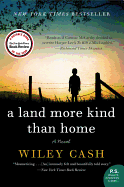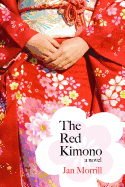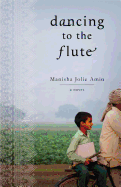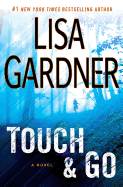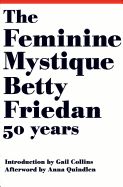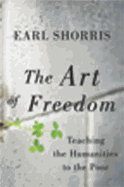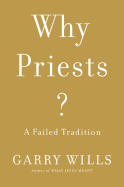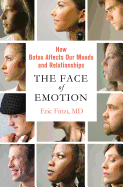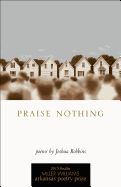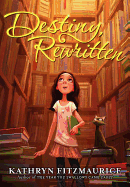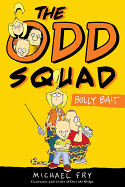 |
| Photo: Charles Rex Arbogast |
As a young man, Garry Wills spent five years at a Jesuit seminary and nearly became a priest himself. After a lifetime of study and reflection, he now poses some challenging questions in Why Priests? A Failed Tradition (see our review below), his most provocative book yet. He asks: Why do we need priests at all? Why did the priesthood arise in a religion that began without it and opposed it? Would Christianity be stronger without the priesthood, as it was at its outset?
Wills has written bestselling works that include What Jesus Meant, Papal Sin, Why I Am a Catholic, Lincoln at Gettysburg (for which he won a Pulitzer) and Bomb Power: The Modern Presidency and the National Security State. A professor emeritus of history at Northwestern University, Wills is also a frequent contributor to the New York Review of Books and other publications. He lives in Evanston, Ill.
You have been an outspoken critic of many aspects of church history and teaching since the 1960s. Was there a specific event or moment that pushed you toward a more critical reading of church history and hierarchy?
Augustine has been my favorite author all my adult life, and I early began pondering his denial of transubstantiation and papal primacy.
You present some very strong intellectual arguments against certain forms of worship or ways of viewing the sacraments. Is it possible that even though certain practices are of tenuous origin, they still serve as a devotional practice that connects the faithful to their experience of God?
The prayer of a gathering of the Body of Christ is always to be fostered, without it having to depend on one male celibate not appointed by the gathering.
How does one disengage from such things without damaging their faith? Where is the baby and where is the bathwater?
Catholics are proving very adept at ignoring papal bath water and retaining the baby.
Why Priests? examines the Book of Hebrews in great depth. To what extent was this New Testament book canonically accepted to stabilize existing power structures and to what extent did the epistle meet a real, spiritual need in the Church at the time?
Hebrews was first accepted in the East, where its "high Christology" was useful in the Trinitarian controversies. The West did not need or accept it until later when support of a priesthood relied on the mythical priest of Canaanite deities, Melchizedek.
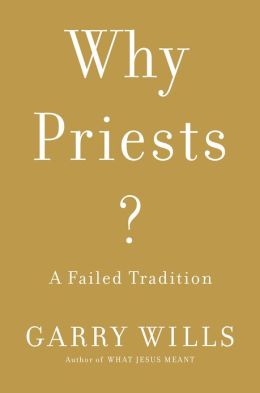 If the priesthood is a "failed tradition," how would you picture a future Catholic Church without it? Would you see any use for semi-priestly offices like deacons?
If the priesthood is a "failed tradition," how would you picture a future Catholic Church without it? Would you see any use for semi-priestly offices like deacons?
Paul's community, without priests, had over a dozen ministries. We are reviving some of them. There are now more deacons than priests in the United States--and more women in parish activities than deacons.
You present competing philosophies of the Eucharist throughout history and apparently see "real presence" in the Eucharist as a misreading of the Gospel of John. But in your closing chapter's personal credo, you cite your belief in the Eucharist. Where would you put your own belief?
I believe, with the early liturgies and Saint Augustine, that the Body of Christ is his people, and we affirm and strengthen that bond in the meal of thanksgiving.
The Book of John and its Bread of Life Discourse are considered the central proof of the Catholic Church's teaching on the Eucharist. Where do you think the Church went wrong on this?
Nowhere in John, in the New Testament, or the early liturgies, is there a priest, much less one taking the role of Jesus and offering human sacrifice to an angry God.
You offer quite a passionate take on the Church's enforcement of correct doctrine through the threat of ex-communication and other heavy-handed tactics. Do you see a more benign way of dealing with such issues? Would the pope and the Magisterium be better off remaining silent?
The papacy came in during the fifth century as a monarchy, and has become irrelevant as monarchies faded.
In both the closing chapter of this book and in Why I Am Still Catholic, you offer a list of your beliefs that are in line with traditional, creedal Christianity. Have your beliefs changed at all between the two books?
I have always believed in the Nicene and Apostles' Creeds, which do not mention popes, priests or sacraments.
Though it is not related to the book, what do you think about how the battle of blue state and red state Catholics was played out in the recent election, with Paul Ryan and Joe Biden as proxies for opposing world views? What do you think of the U.S. Council of Bishops and how it tried to make its wishes known without making its wishes known?
In 2012, many American bishops opposed Obama on the false issue of "religious freedom" in health care, and the majority of Catholics voted for Obama, reminding us of what John Henry Newman claimed, in On Consulting the Faithful (1859)--that, on key issues in the past, the believers had been truer to the gospels than their hierarchical leaders. --Donald Powell, freelance writer
Garry Wills: A Failed Tradition
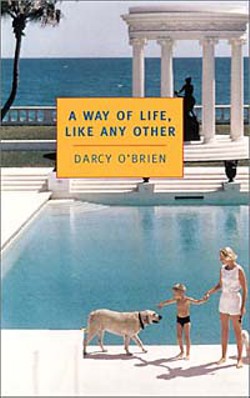 A Way of Life, Like Any Other by Darcy O'Brien, an under-appreciated, funny/poignant 1977 classic Hollywood novel drawn from the author's experiences during the 1950s as the son of fading movie actors. O'Brien offers a distinctly La-La Land take on the traditional coming-of-age story, while leaving us free to wonder precisely where he scuffed out the line between memoir and fiction.
A Way of Life, Like Any Other by Darcy O'Brien, an under-appreciated, funny/poignant 1977 classic Hollywood novel drawn from the author's experiences during the 1950s as the son of fading movie actors. O'Brien offers a distinctly La-La Land take on the traditional coming-of-age story, while leaving us free to wonder precisely where he scuffed out the line between memoir and fiction. 



 If the priesthood is a "failed tradition," how would you picture a future Catholic Church without it? Would you see any use for semi-priestly offices like deacons?
If the priesthood is a "failed tradition," how would you picture a future Catholic Church without it? Would you see any use for semi-priestly offices like deacons? 